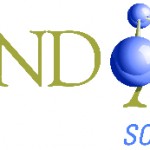 Addiction and the notion that individuals need alcohol or drugs to cope in life creates negative feedback from society, believes Karen Griessel, a social worker at Rand Aid’s Wedge Gardens substance abuse treatment centre.
Addiction and the notion that individuals need alcohol or drugs to cope in life creates negative feedback from society, believes Karen Griessel, a social worker at Rand Aid’s Wedge Gardens substance abuse treatment centre.
“This leads to discrimination as addicts are called junkies, which is a negative connotation often resulting from personal bias and hurtful experiences suffered as a result of active addiction behaviour. Often addicts and alcoholics are ostracised through avoidance and rejection.
“This, in turn, has a negative effect on them as they are unwilling to seek treatment because they expect healthcare workers to have a negative attitude towards them too, especially in general medical or hospital care.”
Karen says those who inject drugs face an even greater level of rejection. She says Wedge Gardens patients have shared their experiences of receiving minimal care in certain state hospitals after an overdose because of care workers’ perceptions.
“Furthermore, harm reduction is frowned upon due to the stigma already instilled in people. Needle exchange outreach programmes are perceived as enabling those addicted to continue using drugs rather than understanding that it is an attempt to prevent the spread of Hepatitis C, also knows as inflammation of the liver, as well as HIV/Aids infection,” says Karen.
She explains that opioid (heroin) substitution therapy – giving a medically-monitored replacement drug like methadone – is also misunderstood. “It gives the user a better chance long term to beat the psychological obsession linked to addiction, especially in long-term use.
“Fighting stigma must begin on an individual level by practising compassion, kindness, listening and, importantly, seeing the person as a whole and not just an addict or alcoholic. This is not always easy, especially if you have been hurt repeatedly by a loved one.
“When the stigma is lifted, education regarding the process of addiction and recovery will be more openly accepted socially.”
* Wedge Gardens can be reached at 011 430 0320. You can also ‘like’ Wedge Gardens on Facebook (www.facebook.com/WedgeGardensTreatmentCentre) or follow them on Twitter (@WedgeGardens)